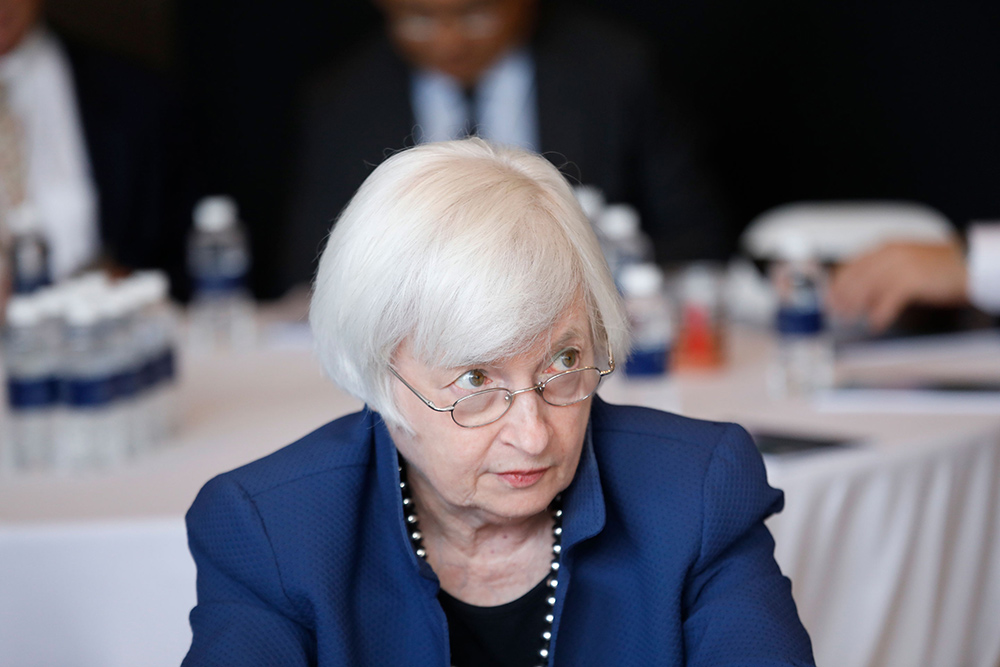
珍妮特·耶伦很可能会成为一名新一代偶像。她那标志性的银色波波头、单链珍珠项链,和似乎无穷无尽的宝石色外套(永远都是立领),很容易就让人联想到把这位新财长的形象印在T恤上,亦或是把她的剪影放到Instagram鸡汤类帖子里的情形。
她天生就是#Girlboss运动的代言人,这项运动把现代女权主义包装得颇有销路,推崇永动机般的繁忙日程,把印有“Notorious RBG”标识的商品卖给年轻女孩。在这种环境下,耶伦在Y世代中的人气应该会很快飞升。
与此同时,耶伦也是华尔街人的老熟人。这位前美联储主席从不做惊人之举——她说了要做什么,就会这么做。金融界乐观地认为,财政部的新掌门人将以商业为导向,她将成为市场的朋友。
此外,耶伦两年前离开美联储后,从高盛和对冲基金Citadel等公司拿到了700多万美元的演讲费,金融圈也因此更有信心。不过这条消息曝光后,在民主党内部引发了一些争议。
进步派喜欢把耶伦看作为美国少数人群谋福利的倡导者。在他们看来,耶伦会推动提高最低工资,加强对影子银行的监管,推动类似多德-弗兰克法案的新立法,来保护消费者权益。
在自由派眼里,耶伦则是最终会把华尔街关进笼子里的那个人。
但无论耶伦在人们眼里是什么形象——女权主义英雄、华尔街救世主、进步派宠儿——和她的新工作比,都会相形见绌。
作为拜登政府的财政部长,她是经济复苏的主心骨,要负责稳定因受新冠肺炎疫情冲击而摇摇欲坠的美国经济。未来几个月,她的决策将对经济复苏的速度产生深远影响。
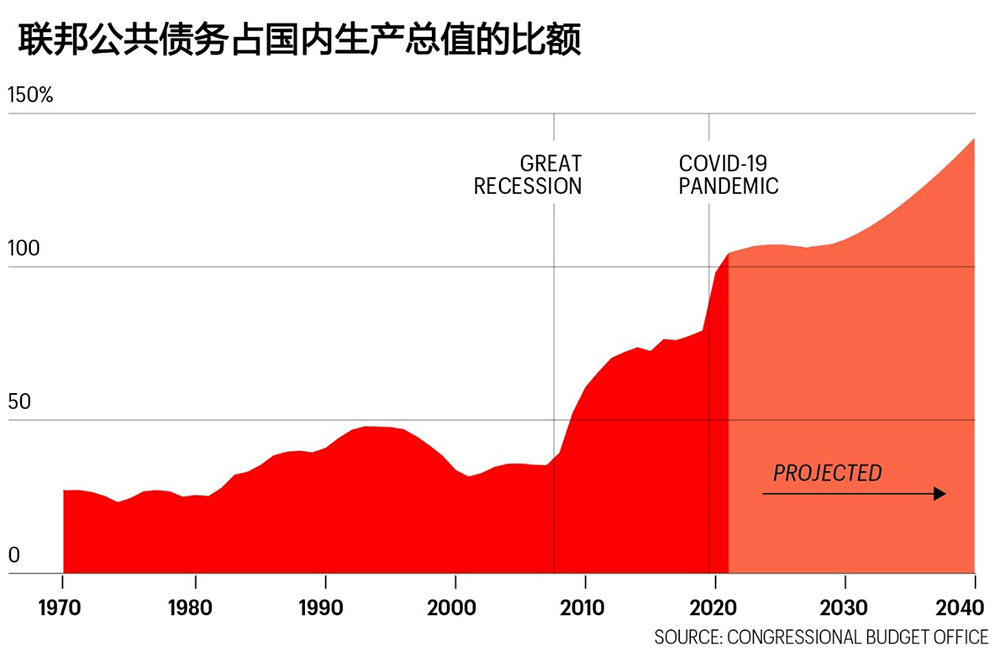
耶伦及拜登政府经济团队其他成员正面临令人生畏的挑战。
尽管美国现在的失业率已经低于去年4月新冠肺炎疫情爆发时14.7%的峰值,但在2020年最后几个月,即便失业率稳定在6.7%,但这一数字几乎也是一年前的两倍。美联储已经把利率降至接近0。
疫情期间,成千上万的小企业永久关闭,而疫情还在继续肆虐。华盛顿对继续借钱刺激经济的担心也在增加。特朗普执政的四年里,美国国债增长了惊人的7.8万亿美元,部分原因是特朗普于2017年颁布了历史性的减税政策,又在去年签署法案通过了3万亿美元的经济刺激计划。
目前,拜登总统提出了名为“美国救援计划”的1.9万亿美元经济刺激方案,一些共和党人以再增加债务将带来巨大风险隐患为由提出反对。
现在的财政部在前任部长史蒂文·姆努钦治下,规模和职能大幅缩减。
2016年至2019年间,由于预算削减,财政部国内金融、经济政策和国际事务等主要部门的人员减少了约25%。这些部门要负责国内经济复苏、金融政策和援助计划等重要职能。
姆努钦副手职位空缺两年,国内金融部门也没有正式负责人。耶伦必须尽快招募大量人手来填补空缺。
很难想象还有谁能比74岁的耶伦更具资质和风度以胜任这份工作。纵观她的简历,每一座事业高峰之后,似乎都跟着另一座更高的高峰,连成了一道由许多“第一个”组成的山脉。
耶伦是全班唯一一位获得耶鲁大学经济学博士学位的女性,也是当时(在很长一段时间内)哈佛大学唯一一位经济学女教授。她曾在比尔•克林顿总统任内担任经济顾问委员会主席(这次她非常难得地不是“首位”,而是第二位担任该职务的女性)。2014年,在奥巴马总统任内,她成为史上首位美联储女主席。
现在到了拜登政府,她又获得了另一个头衔:第一位女财长。

因为这份新工作,耶伦也成为第一位(不分性别)在美国金融界实现大满贯的人:经济顾问委员会主席、美联储主席和财政部长。
耶伦已经进入了角色,与拜登一起推动疫情纾困法案能快速在国会通过。
她在接受《财富》杂志采访时强调,新政府的首要任务包括:100天内成功接种至少1亿剂疫苗;重开学校;确保美国人居者有其屋,不用担心被扫地出门;为多数美国人签发1400美元的经济刺激支票,为州和地方政府提供紧急拨款。
在谈到经济刺激法案时,她表示:“我们的首要任务是帮助人们度过疫情难关,让经济恢复运转。”
这位新财长也响应拜登总统呼吁,号召两党在解决问题时,将政治放在第二位。
“我非常希望民主党和共和党能摒弃党争,共同努力,打破这种已经持续了好几年的僵局。”耶伦说,“我认为两党内很多人看法都一致。我们需要投资于人民和基础设施。我们需要解决自身的竞争力问题。”
商界或许对耶伦感到满意,但她本人并不是商人。与汉克·保尔森或约翰·斯诺等转行担任财政部长的华尔街高管不同,耶伦是一位职业经济学家。她也并不以股市的走向为指引。
美联储前主席、现布鲁金斯学会知名研究员本•伯南克表示,耶伦不会以取悦任何特定利益集团为出发点,她想的是“我们如何推动经济发展,如何确保让尽可能多的人从中受益”。
如果说姆努钦是华盛顿“最急切的男人”,那出生在布鲁克林的耶伦就是华盛顿“准备最充分的女人”。她肯定不会像她的前任那样,拿着一叠钞票让媒体摆拍。
“摆在她面前的是一系列全新的问题,需要她深入研究,她也会深入研究。”伯南克说,“我的意思是,除非她准确无误地弄清楚复杂难懂的税法中的每一个字,是什么意思,如何解决这个问题,否则她一定不罢休。”
的确,耶伦以专注闻名。她各个时期的同事都强调,他们与耶伦的关系完全以工作和专业为中心。
耶伦经常说,如果和她们一家人一起吃饭,一定会非常无聊。她和她的丈夫(2001年诺贝尔经济学奖得主乔治·阿克洛夫)的谈话往往是和工作有关的严肃讨论。她的儿子也加入了这份事业:2009年,他获得哈佛大学经济学博士学位,现在英国华威大学任教。
伯南克毫不犹豫地表示,耶伦喜欢提前非常非常久为会议做准备。众所周知,她会在飞机起飞前好几个小时赶到机场,她说可以利用这些多出来的时间阅读。
伯南克补充道:“她是一个一丝不苟、谨慎周到的人。她说话轻声细语。总是做足了万全的准备,将分析做得一丝不苟。同时,她也不是个胆小羞怯的人,并不害怕站出来发声。有时候,房间里最安静的人,恰恰是你最想去倾听的人。”
耶伦更喜欢备稿发言,而不是即兴发言。
作为布鲁金斯学会哈金斯财政和货币政策中心主任,大卫·维塞尔与耶伦合作密切,曾经无数次看过她发言。他这样描述她回答观众问题的独特方式:先在纸上写下答案并记在心里,接着把纸撕掉。最后才开口说话。
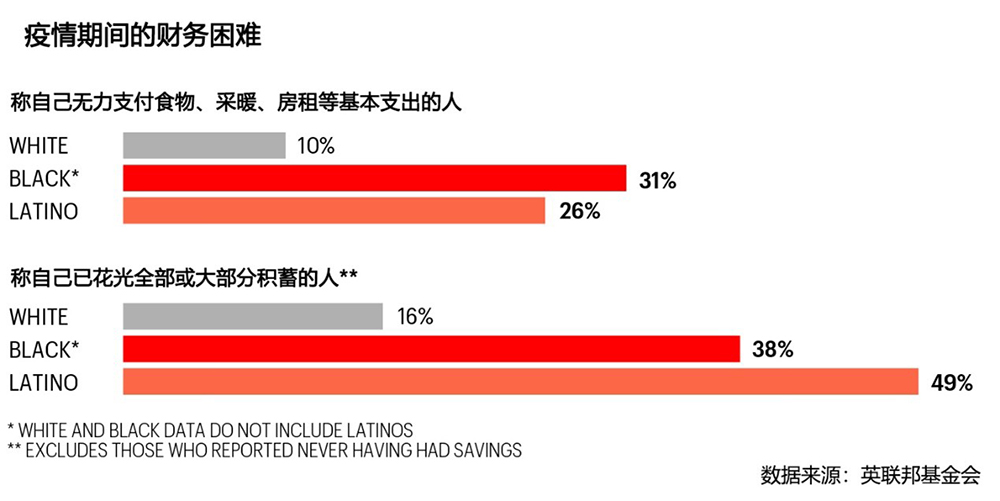
耶伦也拥有不可多得的魅力。旧金山联邦储备银行行长玛丽·C·戴利说,耶伦特别擅长让人觉得自己被注意到了。
戴利说:“我们在珍妮特身上似乎见到了另一位埃莉诺·罗斯福。”她说耶伦是良师益友。“房间里可能有成千上万的人,但当她走上舞台时,所有人都安静下来,所有的目光都聚集在她身上。我从来没见过别人有这种能力。”
维塞尔说,耶伦也喜欢询问同事意见,哪怕她可能已经知道自己要怎么做了。耶伦或许真的是求知欲旺盛,但询问同事意见能立刻让他们感觉良好。而且,考虑到在耶伦的职业生涯里,她往往是满屋子德高望重的男性中唯一的女性面孔,掌握这项技能显然有益无害。
维塞尔说,七国集团、20国集团和国际货币基金组织的大人物们都喜欢耶伦,也尊重她。
“她的声望让她手握足够强大的影响力。”他认为,这种影响能延伸至白宫总统办公室。“如果她决定使用这种权力,她对重大经济政策的影响力将近乎一票否决权。”
但她究竟会如何运用这种权力还有待观察。
耶伦在华盛顿的职业生涯大部分都是在美联储度过的。美联储作为一家独立机构,要让货币政策决策与政治影响保持一定距离。因此,她一直很小心不过多透露自己的个人倾向,或者说,不过多透露和自己有关的信息。
耶伦有一次罕见地流露了自己的政治立场,让维塞尔记忆深刻。
那是2014年,耶伦担任美联储主席已近一年,她在波士顿联邦储备银行向全场同事发表了关于经济机会不平等的讲话。
她说,收入和财富不平等程度已达近100年来的最高水平,这种趋势令她担忧。然后,她以一种很不美联储主席(也很不耶伦)的方式,做了一点点评价。
她说:“我认为有必要问这样一个问题:美国历来高度重视机会平等,这是根植于美国历史的价值观,现在这种趋势是否符合这样的价值观?”
耶伦知道有记者在场,会对活动进行报道,但她自认为这番言论相当温和。
显然,她误判了形势。《纽约时报》的尼尔·欧文认为她的言论“十分激进”。
“说出这番话的不是伊丽莎白·沃伦,不是《国家》杂志的编辑,也不是保罗·克鲁格曼。”这是《纽约客》报道这场活动时的开篇。
“(政府里的)每个人都知道耶伦是自由民主党人,但这真的不应该影响她作为美联储主席的职责。”乔治·W·布什的前经济顾问、时任哈佛大学经济系主任的N·格雷戈里·曼昆在《哈佛政治评论》上写道。
几个月后,耶伦向国会提交了她的半年度货币政策报告。与极左人士相比,耶伦的政治立场似乎更倾向于中间派。但她发现,那时共和党人仍然在关注她在波士顿的讲话。
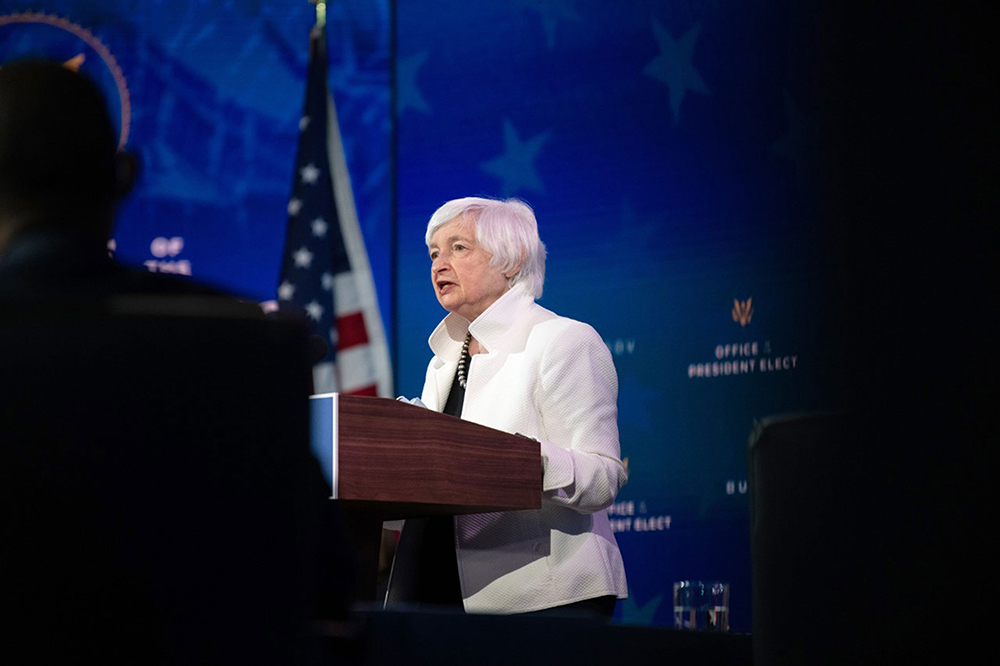
“你在插手那些你无权插手的领域,”后来成为特朗普幕僚长的米克·马尔瓦尼批评道,他当时是来自南卡罗来纳州的共和党众议员。来自威斯康辛州的共和党人、MTV电视台《真实世界》的前演职人员肖恩·达菲指责她有政治偏见。
明显感到不安的耶伦为自己的立场做了辩护。
“我不是在发表政治声明,”她说,“我是在讨论美国面临的一个重大问题。”
她认为自己所说的不过是以数据为基础进行的分析。而且不管怎样,“我之前在很多场合都谈到过这个话题。”她向《财富》杂志表示。
耶伦在2018年经历了罕见的低潮,时任总统唐纳德·特朗普解雇了她,让杰罗姆·鲍威尔接替她担任美联储主席。
“她很失望,”她的朋友维塞尔说。“她以为特朗普会喜欢她,有机会再次获得任命。”不过,她仍然很高兴鲍威尔被提名接任,因为这是位她很尊敬的同行。
直到现在,人们也不清楚特朗普为什么要解雇耶伦。一些人猜测,特朗普只是不想让奥巴马任命的官员继续呆在美联储。
特朗普曾向《华盛顿邮报》表示,耶伦太矮了,不适合执掌美联储。维塞尔还记得耶伦曾经戏谑地说过这个段子。《华盛顿邮报》报道她身高5.3英尺,但实际上她勉强够5英尺。
耶伦对维塞尔说,她不会主动要求报社修正,但其他人可以随意。
去年12月,在特拉华州威尔明顿,耶伦站在当选总统拜登身旁,接受了财政部长的提名。
那次演讲中,这位保守的经济学家难能可贵地吐露了一些心声,为人们看到她的人生故事打开了一小扇窗口。
她说,她的父亲是一名牙医,开始执业的时候恰逢大萧条,他在南布鲁克林的布什码头附近开店,主要给工会工人看牙。
一天工作结束后,他会和年轻的珍妮特讨论工人们的生活。如果工人们失去了工作,他会告诉她,他们会面临经济和家庭问题,无力支付医疗费,还失去了自我价值。
她在演讲中说,这些谈话让她深受触动。
“触动之深,让我成为了一名经济学家,因为我十分关注失业给人们、家庭和社区带来的损失。”
然而,进入男性主导的领域充满挑战。
“性骚扰一直存在,”西尔维亚·安·休利特说。她在上世纪70年代初获得了伦敦大学的经济学博士学位,之后在哥伦比亚大学任教。
休利特表示,像耶伦在职业生涯中那样,关注两性薪酬差距和财富不平等的问题,在当时看来风险很大,对女性而言尤其如此。
“女性有两个选择——要么融入优势群体主导的小圈子,不再发声,要么就要被当成刺头。”
在这种情况下,只有“厚颜无耻”,才能让一位女经济学家越过红线,对业内公认的智者提出质疑。
但耶伦对此不以为然,只是轻描淡写地表示自己所做的是自然演化的结果。
“当我第一次接触宏观经济学时,我在研究生院学到的观点是,只要经济总体表现强劲,失业率保持低位,所有收入阶层都会受益——所谓的水涨就能船高。”耶伦在接受《财富》杂志采访时表示,“但从80年代中期的某个时刻起,这种情况开始变了,经济总体良好并不能确保每个人都能受益。”
耶伦逐渐意识到,尽管充分就业仍然很重要,但这不足以解决大多数美国人长期收入下降的问题。
“因此,多年来我持续关注,试图理解是什么原因让工薪阶层如此难以取得成功。”她表示,“由于整个劳动人口中,有这么多人不能成功,收入和财富不平等才一直处于话题中心。”
1998年,在克林顿执政时期,耶伦牵头进行了一项具有里程碑意义的研究,名为《两性薪资差距趋势解释》。这是她职业生涯的关键时刻。
这篇论文的结论是,女性的收入比男性低25%,而且论文发表时正值美国庆祝肯尼迪总统签署《同工同酬法》35周年。媒体对论文的关注大大提升了她的知名度,也最终帮助她在2004年得到了下一个重要职位——旧金山联邦储备银行行长。
在美联储任职期间,耶伦对种族平等和经济的观点发生了变化。
2015年7月,耶伦在国会作证时遭到了攻击,因为她的证词似乎暗示,在改善黑人失业率过高的问题上,美联储几乎无能为力。进步团体和参议员就此向耶伦施压。她听进去了。
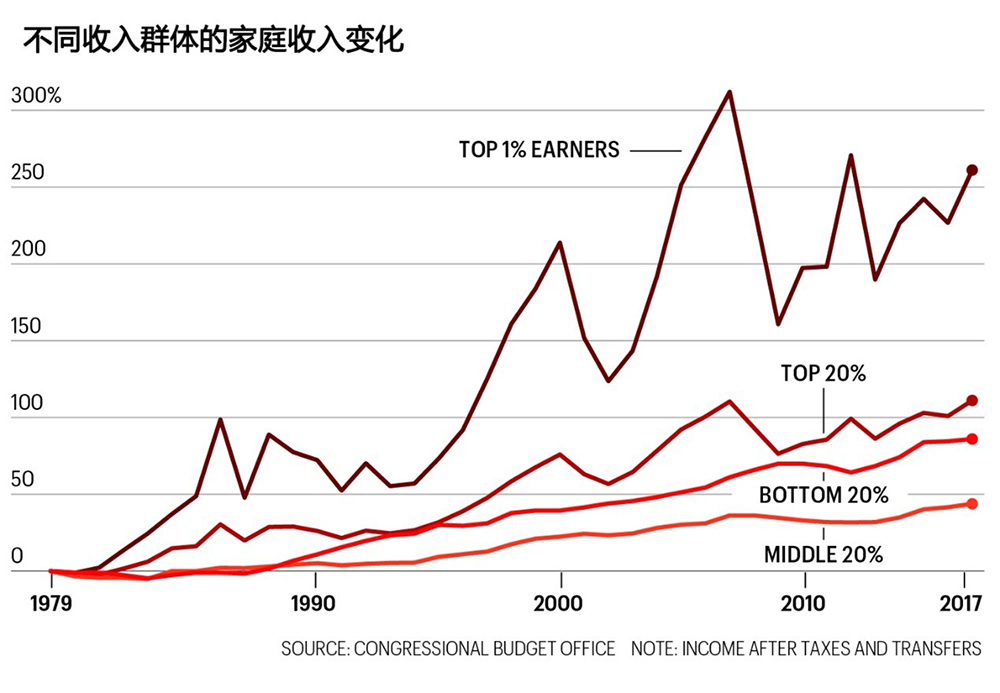
2016年她再次面对国会时,语气明显不同。
她说:“令人担忧的是,少数族裔的失业率仍然高于全国整体失业率,而非裔美国家庭的年收入中位数,仍然远远低于其他美国家庭的收入中位数。”大约在同一时间,耶伦成立了一个专项工作组,致力于提升美联储雇员的多样性。
现在耶伦将同样的观点带到了财政部。黑人经济联盟执行主任、在奥巴马总统任内担任财政部执行秘书的戴维·克鲁尼一直在与耶伦合作,确保财政部在执行新冠肺炎纾困项目时能关注种族不平等问题。
最近的调查发现,拉美裔和非裔美国人在新冠疫情期间,经历的经济困境是美国白人的两到三倍。疫情对女性的影响也超过了男性。
“我看到的耶伦让我备受鼓舞。”克鲁尼说,“她似乎拥有了新的自由,可以更直白地表达她对这些现象的感受。”
耶伦向《财富》杂志表示,在财政部,她将公开对抗不平等问题。
但是,或许是想到了2014年那场充满争议的听证会,她有话要对国会的共和党朋友们说。“工资差距和收入不平等问题不应该被政治化。”她说,“这是每个人都能看到的事实。”
另一个事实是,她的新工作比以往任何一份工作都更具政治色彩。耶伦把一直以来对政治的反感和对数据的尊崇带进了新工作。
而这可能正是美国经济所需要的。
耶伦列出了她的四大重点工作。
拜登政府目前的主要工作是推动1.9万亿美元的新冠肺炎疫情救助方案落地。但一如往常,耶伦已经对任内工作进行了规划,明确了她希望完成的其他事项。
以下是她列出的几大重点工作。
解决收入不平等问题
耶伦认为,解决美国经济的结构性失衡至关重要。
她说:“过去50年,普通高中学历工人的工资几乎没涨,我们需要改变现状,确保这些工人拿到应得的薪酬。”她计划加大基础设施和研发投资力度、加强工人教育培训、确保工人学会使用现代技术,以实现上述目标。耶伦还将重点关注小企业贷款项目,增加就业机会。
应对气候变化
预计拜登团队将重新关注环境问题。
“应对气候变化是当务之急。这个问题一定会受到高度关注。”耶伦表示。
过去,她曾支持征收碳排放税,对排污者收费,以股息的形式将资金重新分配给美国家庭。
去年秋天,耶伦作为委员会共同主席,主持讨论了如何实现0排放。委员会的建议包括调整激励措施,促使企业把可持续发展放在首位,利用市场加速转型,减少化石燃料的使用。
在贸易上挑战中国
耶伦说,我们需要重置与中国的关系,为了有效做到这一点,美国必须与盟友合作应对共同挑战,而不是像特朗普政府那样单打独斗。
“中国是一个非常具有战略意义的竞争对手,”她说,美国需要“使用一系列工具”来应对中国采取的战略。
重振财政部
耶伦说,过去四年,财政部预算被“大幅削减”。部分人员被安排了其他工作,比如监控恐怖主义或其他国家安全风险等,维护国内经济安全的工作却没有人手。
耶伦说,虽然前者“十分重要,需要得到保障”,但是,“在这个过程中,耗尽了财政部其他部门的资源。”她将为财政部配备专人,完成解决结构性经济变化这一首要任务。(财富中文网)
本文发表于《财富》杂志2021年2月/3月刊。
译者:Agatha
编辑:徐晓彤
2018年的珍妮特·耶伦。照片来源:Justin Chin—Bloomberg/Getty Images
珍妮特·耶伦很可能会成为一名新一代偶像。她那标志性的银色波波头、单链珍珠项链,和似乎无穷无尽的宝石色外套(永远都是立领),很容易就让人联想到把这位新财长的形象印在T恤上,亦或是把她的剪影放到Instagram鸡汤类帖子里的情形。
她天生就是#Girlboss运动的代言人,这项运动把现代女权主义包装得颇有销路,推崇永动机般的繁忙日程,把印有“Notorious RBG”标识的商品卖给年轻女孩。在这种环境下,耶伦在Y世代中的人气应该会很快飞升。
与此同时,耶伦也是华尔街人的老熟人。这位前美联储主席从不做惊人之举——她说了要做什么,就会这么做。金融界乐观地认为,财政部的新掌门人将以商业为导向,她将成为市场的朋友。
此外,耶伦两年前离开美联储后,从高盛和对冲基金Citadel等公司拿到了700多万美元的演讲费,金融圈也因此更有信心。不过这条消息曝光后,在民主党内部引发了一些争议。
进步派喜欢把耶伦看作为美国少数人群谋福利的倡导者。在他们看来,耶伦会推动提高最低工资,加强对影子银行的监管,推动类似多德-弗兰克法案的新立法,来保护消费者权益。
在自由派眼里,耶伦则是最终会把华尔街关进笼子里的那个人。
但无论耶伦在人们眼里是什么形象——女权主义英雄、华尔街救世主、进步派宠儿——和她的新工作比,都会相形见绌。
作为拜登政府的财政部长,她是经济复苏的主心骨,要负责稳定因受新冠肺炎疫情冲击而摇摇欲坠的美国经济。未来几个月,她的决策将对经济复苏的速度产生深远影响。
耶伦及拜登政府经济团队其他成员正面临令人生畏的挑战。
尽管美国现在的失业率已经低于去年4月新冠肺炎疫情爆发时14.7%的峰值,但在2020年最后几个月,即便失业率稳定在6.7%,但这一数字几乎也是一年前的两倍。美联储已经把利率降至接近0。
疫情期间,成千上万的小企业永久关闭,而疫情还在继续肆虐。华盛顿对继续借钱刺激经济的担心也在增加。特朗普执政的四年里,美国国债增长了惊人的7.8万亿美元,部分原因是特朗普于2017年颁布了历史性的减税政策,又在去年签署法案通过了3万亿美元的经济刺激计划。
目前,拜登总统提出了名为“美国救援计划”的1.9万亿美元经济刺激方案,一些共和党人以再增加债务将带来巨大风险隐患为由提出反对。
现在的财政部在前任部长史蒂文·姆努钦治下,规模和职能大幅缩减。
2016年至2019年间,由于预算削减,财政部国内金融、经济政策和国际事务等主要部门的人员减少了约25%。这些部门要负责国内经济复苏、金融政策和援助计划等重要职能。
姆努钦副手职位空缺两年,国内金融部门也没有正式负责人。耶伦必须尽快招募大量人手来填补空缺。
很难想象还有谁能比74岁的耶伦更具资质和风度以胜任这份工作。纵观她的简历,每一座事业高峰之后,似乎都跟着另一座更高的高峰,连成了一道由许多“第一个”组成的山脉。
耶伦是全班唯一一位获得耶鲁大学经济学博士学位的女性,也是当时(在很长一段时间内)哈佛大学唯一一位经济学女教授。她曾在比尔•克林顿总统任内担任经济顾问委员会主席(这次她非常难得地不是“首位”,而是第二位担任该职务的女性)。2014年,在奥巴马总统任内,她成为史上首位美联储女主席。
现在到了拜登政府,她又获得了另一个头衔:第一位女财长。
因为这份新工作,耶伦也成为第一位(不分性别)在美国金融界实现大满贯的人:经济顾问委员会主席、美联储主席和财政部长。
耶伦已经进入了角色,与拜登一起推动疫情纾困法案能快速在国会通过。
她在接受《财富》杂志采访时强调,新政府的首要任务包括:100天内成功接种至少1亿剂疫苗;重开学校;确保美国人居者有其屋,不用担心被扫地出门;为多数美国人签发1400美元的经济刺激支票,为州和地方政府提供紧急拨款。
在谈到经济刺激法案时,她表示:“我们的首要任务是帮助人们度过疫情难关,让经济恢复运转。”
这位新财长也响应拜登总统呼吁,号召两党在解决问题时,将政治放在第二位。
“我非常希望民主党和共和党能摒弃党争,共同努力,打破这种已经持续了好几年的僵局。”耶伦说,“我认为两党内很多人看法都一致。我们需要投资于人民和基础设施。我们需要解决自身的竞争力问题。”
商界或许对耶伦感到满意,但她本人并不是商人。与汉克·保尔森或约翰·斯诺等转行担任财政部长的华尔街高管不同,耶伦是一位职业经济学家。她也并不以股市的走向为指引。
美联储前主席、现布鲁金斯学会知名研究员本•伯南克表示,耶伦不会以取悦任何特定利益集团为出发点,她想的是“我们如何推动经济发展,如何确保让尽可能多的人从中受益”。
如果说姆努钦是华盛顿“最急切的男人”,那出生在布鲁克林的耶伦就是华盛顿“准备最充分的女人”。她肯定不会像她的前任那样,拿着一叠钞票让媒体摆拍。
“摆在她面前的是一系列全新的问题,需要她深入研究,她也会深入研究。”伯南克说,“我的意思是,除非她准确无误地弄清楚复杂难懂的税法中的每一个字,是什么意思,如何解决这个问题,否则她一定不罢休。”
的确,耶伦以专注闻名。她各个时期的同事都强调,他们与耶伦的关系完全以工作和专业为中心。
耶伦经常说,如果和她们一家人一起吃饭,一定会非常无聊。她和她的丈夫(2001年诺贝尔经济学奖得主乔治·阿克洛夫)的谈话往往是和工作有关的严肃讨论。她的儿子也加入了这份事业:2009年,他获得哈佛大学经济学博士学位,现在英国华威大学任教。
伯南克毫不犹豫地表示,耶伦喜欢提前非常非常久为会议做准备。众所周知,她会在飞机起飞前好几个小时赶到机场,她说可以利用这些多出来的时间阅读。
伯南克补充道:“她是一个一丝不苟、谨慎周到的人。她说话轻声细语。总是做足了万全的准备,将分析做得一丝不苟。同时,她也不是个胆小羞怯的人,并不害怕站出来发声。有时候,房间里最安静的人,恰恰是你最想去倾听的人。”
耶伦更喜欢备稿发言,而不是即兴发言。
作为布鲁金斯学会哈金斯财政和货币政策中心主任,大卫·维塞尔与耶伦合作密切,曾经无数次看过她发言。他这样描述她回答观众问题的独特方式:先在纸上写下答案并记在心里,接着把纸撕掉。最后才开口说话。
耶伦也拥有不可多得的魅力。旧金山联邦储备银行行长玛丽·C·戴利说,耶伦特别擅长让人觉得自己被注意到了。
戴利说:“我们在珍妮特身上似乎见到了另一位埃莉诺·罗斯福。”她说耶伦是良师益友。“房间里可能有成千上万的人,但当她走上舞台时,所有人都安静下来,所有的目光都聚集在她身上。我从来没见过别人有这种能力。”
维塞尔说,耶伦也喜欢询问同事意见,哪怕她可能已经知道自己要怎么做了。耶伦或许真的是求知欲旺盛,但询问同事意见能立刻让他们感觉良好。而且,考虑到在耶伦的职业生涯里,她往往是满屋子德高望重的男性中唯一的女性面孔,掌握这项技能显然有益无害。
维塞尔说,七国集团、20国集团和国际货币基金组织的大人物们都喜欢耶伦,也尊重她。
“她的声望让她手握足够强大的影响力。”他认为,这种影响能延伸至白宫总统办公室。“如果她决定使用这种权力,她对重大经济政策的影响力将近乎一票否决权。”
但她究竟会如何运用这种权力还有待观察。
耶伦在华盛顿的职业生涯大部分都是在美联储度过的。美联储作为一家独立机构,要让货币政策决策与政治影响保持一定距离。因此,她一直很小心不过多透露自己的个人倾向,或者说,不过多透露和自己有关的信息。
耶伦有一次罕见地流露了自己的政治立场,让维塞尔记忆深刻。
那是2014年,耶伦担任美联储主席已近一年,她在波士顿联邦储备银行向全场同事发表了关于经济机会不平等的讲话。
她说,收入和财富不平等程度已达近100年来的最高水平,这种趋势令她担忧。然后,她以一种很不美联储主席(也很不耶伦)的方式,做了一点点评价。
她说:“我认为有必要问这样一个问题:美国历来高度重视机会平等,这是根植于美国历史的价值观,现在这种趋势是否符合这样的价值观?”
耶伦知道有记者在场,会对活动进行报道,但她自认为这番言论相当温和。
显然,她误判了形势。《纽约时报》的尼尔·欧文认为她的言论“十分激进”。
“说出这番话的不是伊丽莎白·沃伦,不是《国家》杂志的编辑,也不是保罗·克鲁格曼。”这是《纽约客》报道这场活动时的开篇。
“(政府里的)每个人都知道耶伦是自由民主党人,但这真的不应该影响她作为美联储主席的职责。”乔治·W·布什的前经济顾问、时任哈佛大学经济系主任的N·格雷戈里·曼昆在《哈佛政治评论》上写道。
几个月后,耶伦向国会提交了她的半年度货币政策报告。与极左人士相比,耶伦的政治立场似乎更倾向于中间派。但她发现,那时共和党人仍然在关注她在波士顿的讲话。
去年12月,耶伦在拜登总统宣布提名她为美国财政部长后发表演讲。照片来源:克里斯顿·杰·贝瑟尔,《纽约时报》/Redux Pictures
“你在插手那些你无权插手的领域,”后来成为特朗普幕僚长的米克·马尔瓦尼批评道,他当时是来自南卡罗来纳州的共和党众议员。来自威斯康辛州的共和党人、MTV电视台《真实世界》的前演职人员肖恩·达菲指责她有政治偏见。
明显感到不安的耶伦为自己的立场做了辩护。
“我不是在发表政治声明,”她说,“我是在讨论美国面临的一个重大问题。”
她认为自己所说的不过是以数据为基础进行的分析。而且不管怎样,“我之前在很多场合都谈到过这个话题。”她向《财富》杂志表示。
耶伦在2018年经历了罕见的低潮,时任总统唐纳德·特朗普解雇了她,让杰罗姆·鲍威尔接替她担任美联储主席。
“她很失望,”她的朋友维塞尔说。“她以为特朗普会喜欢她,有机会再次获得任命。”不过,她仍然很高兴鲍威尔被提名接任,因为这是位她很尊敬的同行。
直到现在,人们也不清楚特朗普为什么要解雇耶伦。一些人猜测,特朗普只是不想让奥巴马任命的官员继续呆在美联储。
特朗普曾向《华盛顿邮报》表示,耶伦太矮了,不适合执掌美联储。维塞尔还记得耶伦曾经戏谑地说过这个段子。《华盛顿邮报》报道她身高5.3英尺,但实际上她勉强够5英尺。
耶伦对维塞尔说,她不会主动要求报社修正,但其他人可以随意。
去年12月,在特拉华州威尔明顿,耶伦站在当选总统拜登身旁,接受了财政部长的提名。
那次演讲中,这位保守的经济学家难能可贵地吐露了一些心声,为人们看到她的人生故事打开了一小扇窗口。
她说,她的父亲是一名牙医,开始执业的时候恰逢大萧条,他在南布鲁克林的布什码头附近开店,主要给工会工人看牙。
一天工作结束后,他会和年轻的珍妮特讨论工人们的生活。如果工人们失去了工作,他会告诉她,他们会面临经济和家庭问题,无力支付医疗费,还失去了自我价值。
她在演讲中说,这些谈话让她深受触动。
“触动之深,让我成为了一名经济学家,因为我十分关注失业给人们、家庭和社区带来的损失。”
然而,进入男性主导的领域充满挑战。
“性骚扰一直存在,”西尔维亚·安·休利特说。她在上世纪70年代初获得了伦敦大学的经济学博士学位,之后在哥伦比亚大学任教。
休利特表示,像耶伦在职业生涯中那样,关注两性薪酬差距和财富不平等的问题,在当时看来风险很大,对女性而言尤其如此。
“女性有两个选择——要么融入优势群体主导的小圈子,不再发声,要么就要被当成刺头。”
在这种情况下,只有“厚颜无耻”,才能让一位女经济学家越过红线,对业内公认的智者提出质疑。
但耶伦对此不以为然,只是轻描淡写地表示自己所做的是自然演化的结果。
“当我第一次接触宏观经济学时,我在研究生院学到的观点是,只要经济总体表现强劲,失业率保持低位,所有收入阶层都会受益——所谓的水涨就能船高。”耶伦在接受《财富》杂志采访时表示,“但从80年代中期的某个时刻起,这种情况开始变了,经济总体良好并不能确保每个人都能受益。”
耶伦逐渐意识到,尽管充分就业仍然很重要,但这不足以解决大多数美国人长期收入下降的问题。
“因此,多年来我持续关注,试图理解是什么原因让工薪阶层如此难以取得成功。”她表示,“由于整个劳动人口中,有这么多人不能成功,收入和财富不平等才一直处于话题中心。”
1998年,在克林顿执政时期,耶伦牵头进行了一项具有里程碑意义的研究,名为《两性薪资差距趋势解释》。这是她职业生涯的关键时刻。
这篇论文的结论是,女性的收入比男性低25%,而且论文发表时正值美国庆祝肯尼迪总统签署《同工同酬法》35周年。媒体对论文的关注大大提升了她的知名度,也最终帮助她在2004年得到了下一个重要职位——旧金山联邦储备银行行长。
在美联储任职期间,耶伦对种族平等和经济的观点发生了变化。
2015年7月,耶伦在国会作证时遭到了攻击,因为她的证词似乎暗示,在改善黑人失业率过高的问题上,美联储几乎无能为力。进步团体和参议员就此向耶伦施压。她听进去了。
2016年她再次面对国会时,语气明显不同。
她说:“令人担忧的是,少数族裔的失业率仍然高于全国整体失业率,而非裔美国家庭的年收入中位数,仍然远远低于其他美国家庭的收入中位数。”大约在同一时间,耶伦成立了一个专项工作组,致力于提升美联储雇员的多样性。
现在耶伦将同样的观点带到了财政部。黑人经济联盟执行主任、在奥巴马总统任内担任财政部执行秘书的戴维·克鲁尼一直在与耶伦合作,确保财政部在执行新冠肺炎纾困项目时能关注种族不平等问题。
最近的调查发现,拉美裔和非裔美国人在新冠疫情期间,经历的经济困境是美国白人的两到三倍。疫情对女性的影响也超过了男性。
“我看到的耶伦让我备受鼓舞。”克鲁尼说,“她似乎拥有了新的自由,可以更直白地表达她对这些现象的感受。”
耶伦向《财富》杂志表示,在财政部,她将公开对抗不平等问题。
但是,或许是想到了2014年那场充满争议的听证会,她有话要对国会的共和党朋友们说。“工资差距和收入不平等问题不应该被政治化。”她说,“这是每个人都能看到的事实。”
另一个事实是,她的新工作比以往任何一份工作都更具政治色彩。耶伦把一直以来对政治的反感和对数据的尊崇带进了新工作。
而这可能正是美国经济所需要的。
耶伦列出了她的四大重点工作。
拜登政府目前的主要工作是推动1.9万亿美元的新冠肺炎疫情救助方案落地。但一如往常,耶伦已经对任内工作进行了规划,明确了她希望完成的其他事项。
以下是她列出的几大重点工作。
解决收入不平等问题
耶伦认为,解决美国经济的结构性失衡至关重要。
她说:“过去50年,普通高中学历工人的工资几乎没涨,我们需要改变现状,确保这些工人拿到应得的薪酬。”她计划加大基础设施和研发投资力度、加强工人教育培训、确保工人学会使用现代技术,以实现上述目标。耶伦还将重点关注小企业贷款项目,增加就业机会。
应对气候变化
预计拜登团队将重新关注环境问题。
“应对气候变化是当务之急。这个问题一定会受到高度关注。”耶伦表示。
过去,她曾支持征收碳排放税,对排污者收费,以股息的形式将资金重新分配给美国家庭。
去年秋天,耶伦作为委员会共同主席,主持讨论了如何实现0排放。委员会的建议包括调整激励措施,促使企业把可持续发展放在首位,利用市场加速转型,减少化石燃料的使用。
在贸易上挑战中国
耶伦说,我们需要重置与中国的关系,为了有效做到这一点,美国必须与盟友合作应对共同挑战,而不是像特朗普政府那样单打独斗。
“中国是一个非常具有战略意义的竞争对手,”她说,美国需要“使用一系列工具”来应对中国采取的战略。
重振财政部
耶伦说,过去四年,财政部预算被“大幅削减”。部分人员被安排了其他工作,比如监控恐怖主义或其他国家安全风险等,维护国内经济安全的工作却没有人手。
耶伦说,虽然前者“十分重要,需要得到保障”,但是,“在这个过程中,耗尽了财政部其他部门的资源。”她将为财政部配备专人,完成解决结构性经济变化这一首要任务。(财富中文网)
本文发表于《财富》杂志2021年2月/3月刊。
译者:Agatha
编辑:徐晓彤
Janet Yellen is an icon waiting to happen. With her signature silver bob, single-strand pearl necklace, and seemingly infinite supply of jewel-toned jackets (collar popped, always), it’s easy to imagine the new Treasury secretary’s image emblazoned on T-shirts and her silhouette outlined on inspirational Instagram posts. She’s a natural fit as an emblem of the #Girlboss movement that has so finely boiled down modern feminism into a shallow yet marketable vestige of unadulterated capitalism—a conceit used to describe the relentless rise-and-grind schedules of business leaders like Marissa Mayer and Sheryl Sandberg, and to help sell “Notorious RBG” merch to young women. Yellen’s Q score with Gen Y should soon be on the rise.
On Wall Street, meanwhile, Yellen is seen as a known quantity. The former Fed chair is someone who doesn’t make surprise decisions—who says what she’s going to do and then does just that. Big Finance is optimistic that she’ll be a business-oriented leader at Treasury and a friend to markets. That confidence is only bolstered by the fact that Yellen collected more than $7 million in speaking fees from the likes of Goldman Sachs and hedge fund Citadel since leaving the Fed two years ago—a revelation that stirred a bit of controversy among Democrats.
Progressives like to think of Yellen as an advocate for underrepresented Americans. They see her as someone who will push for a higher minimum wage, more regulation of shadow banking, and new legislation in the mode of Dodd-Frank to protect consumers. To liberals, Yellen is someone who will at last put the guardrails on Wall Street.
But no matter what persona is projected onto Yellen—feminist hero, Wall Street savior, progressive darling—the magnitude of her new day job dwarfs all of them in consequence. As Treasury secretary, she is running point for the Biden administration’s efforts to stabilize a teetering U.S. economy that has been rocked by the COVID-19 pandemic. Her decisions over the next few months will have a profound impact on how quickly the economy can rebound.
The challenges facing Yellen and the rest of President Joe Biden’s economic team are daunting. Though the U.S. unemployment rate has fallen from its COVID peak of 14.7% last April, it plateaued at 6.7% in the final months of 2020, nearly twice as high as a year earlier. The Federal Reserve has already taken rates down to near zero. Thousands of small businesses have closed for good during the pandemic, which continues to ravage the country. And there is rising concern in Washington about continued borrowing to stimulate the economy. The U.S. national debt grew by a stunning $7.8 trillion over the past four years under the Trump administration, driven in part by Trump’s signature 2017 tax cuts and the $3 trillion in stimulus funding Trump signed into law last year. Some Republicans are now using the specter of further debt to push back against President Biden’s proposed $1.9 trillion stimulus bill, dubbed the “American Rescue Plan.”
Yellen is also taking the reins at a Treasury Department that has been greatly reduced in size and capacity under her predecessor, Steven Mnuchin. Between 2016 and 2019, the Treasury’s main offices, including domestic finance, economic policy, and international affairs, saw staffing drop by about 25% as budgets fell. Those departments control responses to the economic recovery, financial policy, and grant programs. Mnuchin operated without a deputy for two years and left the division of domestic finance without an official leader. Yellen will have to bring in a number of people, and quickly, to fill empty positions.
But it’s hard to imagine a leader with more sparkling credentials—or a better demeanor—for the work at hand than the 74-year-old Yellen. Each career peak on her résumé has been seemingly followed by another, higher summit—a mountain range of firsts. Yellen was the only woman in her class to earn an economics Ph.D. at Yale University, and she was then (for quite some time) the sole female economics professor at Harvard University. She served under President Bill Clinton as chair of the Council of Economic Advisers (a rare non-first moment; she was the second woman to serve in that role). In 2014, she was confirmed as the first female chair of the Federal Reserve, under Barack Obama. Now, under President Biden, she’s achieved yet another title: the first woman secretary of the Treasury.
Her new job also makes Yellen the first person—of any gender—to complete the holy trinity of the U.S. finance circuit: Council of Economic Advisers chair, Fed chair, and Treasury secretary.
Yellen has hit the ground running, working with Biden to get his COVID-19 relief bill passed by Congress quickly. In a conversation with Fortune, she underscores the new administration’s top priorities: a successful distribution of at least 100 million doses of vaccine within 100 days; reopening schools; making sure Americans are able to remain in their homes without fear of eviction; and providing a $1,400 stimulus check to a majority of Americans and emergency funding for state and local governments. “It’s a priority to help get us through the pandemic, to get our economy functioning again,” she says of the stimulus legislation.
The new Treasury secretary also echoes President Biden’s calls for both parties to dial back politics in the interest of problem-solving. “I hope very much that we can work in a bipartisan way, Democrats and Republicans, to get beyond this sort of stalemate that has been around for a number of years now,” says Yellen. “I think that many people agree on both sides of the aisle. We need to invest in our people and our infrastructure. We need to solve our competitiveness.”
*****
The business world may be comfortable with Yellen, but she’s no businessperson herself. Unlike Hank Paulson or John Snow, Wall Street execs turned Treasury heads, Yellen is a career economist. And the direction of the stock market is not her North Star. Yellen’s perspective, says Ben Bernanke, the former Federal Reserve chair and now distinguished fellow at the Brookings Institution, isn’t to please any particular interest group. Rather, it’s “how do we get the economy going, and how do we make sure the benefits are spread as widely as possible?”
If Mnuchin was the Beltway’s “most eager man,” as he’s been called, the Brooklyn-born Yellen is Washington’s “most prepared woman.” She certainly won’t be arranging photo ops with sheets of money, as her predecessor did. “She’s got a whole new set of issues that she’s going to have to dig into, and she will,” says Bernanke. “I mean, she won’t be satisfied until she understands exactly why every particular line in the tax code is as unintelligible as it is, what it means, and how to fix that.”
Indeed, Yellen is legendary for her focus. Her colleagues past and present emphasize that their relationship with Yellen is centered wholly around work and shoptalk. She often remarks that people would be bored if they joined her family for dinner, as she and her husband, George Akerlof, who won the Nobel Prize in economics in 2001, usually engage in rigorous work-related discussion. Her son is also in the family business; he received his Ph.D. in economics from Harvard University in 2009 and teaches at the University of Warwick in England.
Bernanke is quick to point out that Yellen prefers to prepare for meetings very, very far in advance. She’s known for showing up to airports hours before her flight; she says that she uses the extra time to read. Adds Bernanke: “She’s a meticulous, cautious, thoughtful person. She speaks quietly. She’s well prepared, and she’s done all of the analysis. But she’s not a shrinking violet, and she’s not afraid to speak up. Sometimes the quietest person in the room is the person you most want to listen to.”
Yellen prefers to read from notes rather than speak off the cuff. As director of the Hutchins Center on Fiscal and Monetary Policy at the Brookings Institution, David Wessel has worked closely with Yellen and has seen her speak more times than he can count. He describes her unique procedure for answering audience questions. First, she writes out her response and commits it to memory. Next, she rips up the paper. And finally she speaks.
But Yellen also possesses a rare charisma. Mary C. Daly, president of the Federal Reserve Bank of San Francisco, says Yellen is especially skilled at making people feel seen. “I feel like we’ve met another Eleanor Roosevelt in Janet,” says Daly, who calls Yellen a mentor and a friend. “There can be a room of thousands of people, but when she walks up to the stage, everybody goes quiet, and all eyes are on her. I’ve never seen that happen with anybody else.”
She also makes a habit of asking colleagues for their opinions, even when it’s likely that she already knows what she’s going to do, says Wessel. Yellen may be genuinely curious, but soliciting input also offers colleagues a quick ego rub. And massaging egos is a skill that certainly doesn’t hurt Yellen, who has made a career of being the only woman in rooms full of well-venerated men.
The people sitting around the tables at the G7 and G20 and the IMF like Yellen but also respect her, says Wessel. “Her stature will give her substantial influence in the administration.” That influence will extend to the Oval Office, he predicts. “When she chooses to use it, she’ll have something close to veto power over big economic policies.”
But how exactly she wields that power remains to be seen. Yellen has spent the majority of her Washington career working at the Federal Reserve, an independent agency charged with keeping monetary policy decisions at arm’s length from political influence. As a result, she has been careful about revealing her personal leanings, or much about herself at all.
*****
One event sticks out in Wessel’s mind as a moment when Yellen gave a rare glimpse of her political stripes. It was 2014 and Yellen was nearly a year into her role as Fed chair when she gave a speech on the inequality of economic opportunity to a room full of her peers at the Federal Reserve Bank of Boston. Income and wealth inequality, she said, were near their highest levels in the past 100 years, and the trend concerned her. And then, in an un–Fed chair (and un-Yellen) way, she editorialized just a little. “I think it is appropriate to ask whether this trend is compatible with values rooted in our nation’s history, among them the high value Americans have traditionally placed on equality of opportunity,” she said.
Yellen knew that reporters were there to cover the talk, but she believed her remarks were relatively benign.
Apparently, she misjudged. Neil Irwin of the New York Times called her words “downright radical.”
“No, that wasn’t Elizabeth Warren, or the editor of The Nation, or Paul Krugman,” began the New Yorker story about the event.
“Everyone [in the government community] knows that Yellen is a liberal Democrat, but that really shouldn’t influence her job as Federal Reserve chair,” commented N. Gregory Mankiw, former economic adviser to George W. Bush and then-chair of the Harvard economics department, to the Harvard Political Review.
Months later, Yellen, who appears to skew much closer to the center of the political spectrum than the far left, reported to Congress to deliver her semiannual monetary policy report. But she found that Republicans were still focused on her remarks in Boston.
“You’re sticking your nose in places that you have no business to be,” scolded future Trump chief of staff Mick Mulvaney, then a Republican representative from South Carolina. Rep. Sean Duffy, a Republican from Wisconsin and former cast member of MTV’s The Real World, accused her of political bias.
A visibly rattled Yellen defended her position. “I am not making political statements,” she said. “I am discussing a significant problem that faces America.”
She didn’t see what she was saying as anything but data-driven analysis. And anyway, “it had been a topic I’d addressed on a number of occasions before,” she tells Fortune.
Yellen experienced a rare setback in 2018 when then-President Donald Trump essentially axed her and replaced her as Fed chair with Jerome Powell. “She was disappointed,” says her friend Wessel. “She thought that Trump liked her and that she had a shot at being reappointed.” Still, she was happy that Powell, a peer she respects, was nominated to do the job.
It’s still unclear exactly why Trump got rid of Yellen. Some speculate that he just didn’t want an Obama appointment at the Fed. Trump told the Washington Post that he thought she was too short to run the Fed. Wessel remembers her joking about the story. The Post said she was five-three when in reality she’s barely five-feet even. She wasn’t going to call in a correction, Yellen told Wessel, but somebody else could feel free to.
*****
In December, Yellen stood next to President-elect Biden in Wilmington, Del., as she accepted his nomination for Treasury secretary. There, in a speech that was uniquely candid for the reserved economist, she offered a window into how she became the person she is today.
Her father, she said, was a dentist who began his business during the Great Depression, setting up shop near Bush Terminal, a group of docks in South Brooklyn. He worked on the teeth of union workers. At the end of the day, he’d discuss their lives with young Janet. If they had lost a job, he would tell her about their financial and family problems, their inability to afford health care, their loss of self-worth.
Those lessons stuck with her “so much so that I became an economist because I was concerned about the toll of unemployment on people, families, and communities,” she said in her speech.
But entering a male-dominated field was not without challenges. “The sexual harassment was ever present,” says Sylvia Ann Hewlett, who received her Ph.D. in economics from the University of London in the early 1970s before teaching at Columbia University. The idea of focusing on gender pay gaps and wealth inequality, as Yellen came to do in her career, was risky at the time, especially for a woman, says Hewlett. “Women had two choices—either they joined the dominant group and didn’t write about it, or you were seen as a sore thumb.”
In that context, it took chutzpah for a female economist to step out of line and raise questions about the accepted wisdom in the field. But Yellen downplays that narrative, and describes her work as a natural evolution.
“When I first went into macroeconomics, the view that I had and had learned in graduate school was that a generally strong economy with a low unemployment rate would benefit workers across the income spectrum—that a so-called rising tide lifts all boats,” Yellen tells Fortune. “But sometime in the mid-’80s that really began to change, and it became no longer true that when the economy was doing well overall that everybody benefited.”
Yellen came to realize that while full employment was still important, it wasn’t enough to address long-term declines in income for the majority of Americans. “And so I have focused for many years on understanding what the forces are that have been making it so difficult for workers to succeed,” she says. “And because such a large share of the workforce hasn’t been able to get ahead, income and wealth inequality has been the theme.”
In 1998, under Bill Clinton, Yellen took the lead on a landmark study, “Explaining Trends in the Gender Wage Gap.” It proved to be a pivotal moment in her career. The paper concluded that women earned 25% less than men, and it was published just as America was celebrating the 35th anniversary of President Kennedy’s signing of the Equal Pay Act. The resulting media attention elevated her profile and eventually helped boost her into her next major role as president of the Federal Reserve Bank of San Francisco in 2004.
While at the Fed, Yellen’s views on racial justice and the economy evolved. In July of 2015, Yellen received some blowback from testimony she gave to Congress that seemed to imply that there was little the Federal Reserve could do to improve disproportionately high Black unemployment rates. Progressive groups and senators pushed Yellen on the topic. She listened.
When she met again with Congress in 2016, she took a markedly different tone. “It is troubling that unemployment rates for these minority groups remain higher than for the nation overall, and that the annual income of the median African-American household is still well below the median income of other U.S. households,” she said. Around the same time, Yellen created a task force to diversify hiring practices within the Federal Reserve itself.
Now Yellen is bringing that same perspective to the Treasury. David Clunie, executive director of the Black Economic Alliance and the executive secretary of the Department of the Treasury under President Barack Obama, has been working with Yellen to ensure that the department is focused on racial inequality while working through COVID-relief programs. Recent surveys found that Latino and Black Americans have experienced economic hardship during COVID-19 two to three times as great as that of white Americans. The pandemic has also had a disproportionate effect on women compared with men. (See “Is America Giving Up on Working Women?”) “I’ve been encouraged by what I’ve seen," says Clunie. “She seems to have a new freedom to speak in much more outward terms about what this means to her personally.”
Yellen tells Fortune that at the Treasury she will fight publicly to address inequality. But, perhaps thinking back to that contentious 2014 hearing, she has a message for her Republican friends in Congress. “The wage gap and income inequality should not be politicized,” she says. “They’re facts that everyone recognizes.”
It’s also a fact that her new job is more overtly political than any she has held before. Yellen brings to it a distaste for politics as usual and a reverence for data. And that might be just what the economy needs.
*****
Straight from the secretary’s mouth
Yellen outlines four of her top priorities.
The push for a $1.9 trillion COVID-19 relief package is the Biden administration’s chief focus now. But true to form, Secretary Yellen has already outlined her tenure at the Treasury and identified what else she wants to accomplish. Here is what lies at the top of her list.
Tackling income inequality
Yellen believes it’s critical to address the economy’s structural imbalance. “We have an economy where the typical high school–educated worker is barely seeing any wage increase for the last 50 years, and we need to change that and make sure that those workers get the kind of pay they deserve,” she says. That will happen by investing in infrastructure and R&D, and by educating workers so that they have the skills to utilize modern technology. Yellen also plans to focus on small-business loan programs to help boost job creation.
Taking on climate change
Expect a renewed focus on the environment from the Biden team. “Climate change is a big priority. It’s going to be very clearly in focus,” says Yellen. In the past, she’s supported a carbon tax that would charge polluters for emissions and redistribute funds to U.S. households through dividends. Last fall, Yellen cochaired a committee on how to achieve net-zero emissions. Recommendations included shifting incentives for companies to prioritize sustainability and using markets to speed the transition from fossil fuels.
Challenging China on trade
We need to reset the relationship with China, says Yellen, and in order to do so effectively the U.S. will have to work with allies to address common challenges instead of operating unilaterally as the Trump administration preferred. “China is a very strategic competitor,” she says, noting that the U.S. needs to “use an array of tools” to address a number of disruptive actions taken by China, such as “dumping products, erecting trade barriers, and giving illegal subsidies to corporations.” Those actions are “hurting our economy,” she says.
Rebuilding capacity at Treasury
The Treasury budget over the past four years has been “cut enormously,” says Yellen. There has been a reallocation of personnel toward activities ranging from monitoring terrorism and other national security concerns and away from economic security at home. While the former are “important things for us to preserve,” says Yellen, “in the process, other areas of the Treasury have really been depleted.” She will be staffing up Treasury with people dedicated to her overarching mission of addressing structural economic changes.
This article appears in the February/March 2021 issue of Fortune.






